
Experts say that Chinese enterprises have significantly invested in infrastructure construction in the Middle East and the Belt and Road Initiative has brought golden opportunity for the development of the region.
According to the latest report released by the Kuwait-based Arab Investment and Export Credit Guarantee Corporation, China has became a major investor in the Middle East in 2016, with a total investment of 29.5 billion U.S. dollars, accounting for 31.9 percent of the total investment from non-Arab countries.
China’s rise as principal investor in Middle East not surprising
The 150-page report, titled 2017 Investment Climate in Arab Countries, comprehensively analyzes the current state of investment and development trend in the Arab region.
“The economic cooperation between China and the Arab countries has steadily improved in recent years. Thus, it is not surprising that China has emerged as a primary investor in the Middle East this year,” said Ibrahim El Ghitany, a principal researcher at the Regional Center for Strategic Studies in Egypt, adding that China-Arab economic cooperation has long served as a “ballast stone” in growing bilateral ties. In recent years, bilateral cooperation has extended to other fields beyond oil and gas. Chinese enterprises have played an important role in terms of infrastructure investment in the Middle East.
Statistics showed that over the past 10 years, Chinese enterprises have invested in projects covering various fields, ranging from electronic communication to retail and commerce, in the Middle East. In the meanwhile, trade volume between China and the Middle East has increased from 20 billion U.S. dollars to 230 billion U.S. dollars, which is expected to exceed 500 billion U.S. dollars by 2020.
“Some Arab countries suffered international financial crisis and political turmoil. Now, the investment climate is recovering speedily, which would have been impossible without China’s forward-looking investments,” said Ibrahim El Ghitany.
Middle East praises China’s construction of industrial park
In recent years, economic cooperation between China and the Arab countries has borne fruits in many fields. After 10 years of construction, China-Egypt Suez Economic and Trade Cooperation Zone has attracted about 70 enterprises as tenants, with total investment worth nearly 1 billion U.S. dollars. Moreover, China-Oman (Duqm) Industrial Park laid its foundation and 10 enterprises became the first ones to sign up for tenancy in April.
The Middle East has been recognized as one of the markets with the greatest growth potential in the world. Most of the countries in the Middle East belong to developing countries and emerging economies, with a large number of them now at the initial or accelerating stage of industrialization or urbanization. Therefore, there is a huge demand for energy, communication, transportation and other infrastructure.
The Middle East needs industrial transformation and upgrading to accelerate its development. Presently, the Arab countries represented by Egypt are vigorously advancing domestic industrialization and improving their capability to generate economic growth. In the meanwhile, Gulf oil producers, such as Saudi Arabia, Qatar and Oman, are seeking economic and industrial diversification given the persistently depressed oil prices. In this backdrop, China’s successful construction of industrial zones and industrial parks has been very popular in the Middle East and some countries are now conducting active cooperation with China to construct other industrial parks.
In the financial sector, China has signed a domestic currency swap agreement with Qatar to establish a Renminbi clearing bank. Qatar Investment Authority and China have set up a 10 billion U.S. dollars worth of investment fund on a 50-50 basis.
Now, China and the Middle East are strengthening financial cooperation to enable enterprises and financial institutions in the region to conduct cross-border transactions in Renminbi and further promote bilateral trade and investment facilitation.
The Egyptian experts believe that China’s investment in Arabic countries has grown considerably and the Belt and Road Initiative proposed by China has provided a rare opportunity for the economic development of the Middle East.
“With the encouragement of both governments, large national projects are continuously progressing, while small- and medium-sized enterprises (SME) in the region can jump on the Belt and Road bandwagon. In the process, China is introducing advanced technology to the Middle East, which helps Arab countries to pursue industrial development,” said Ibrahim El Ghitany.













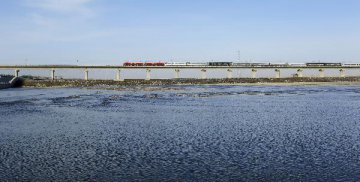
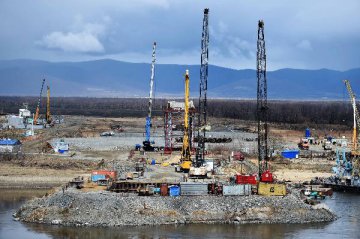

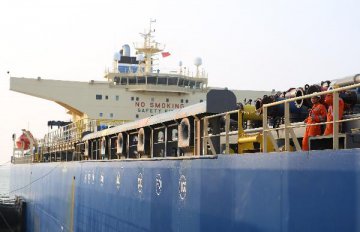
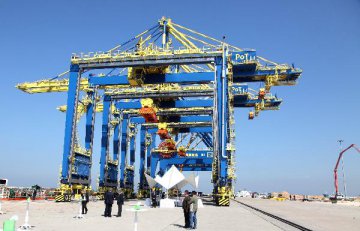
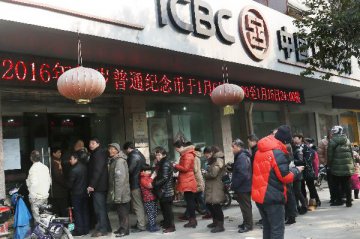


Latest comments